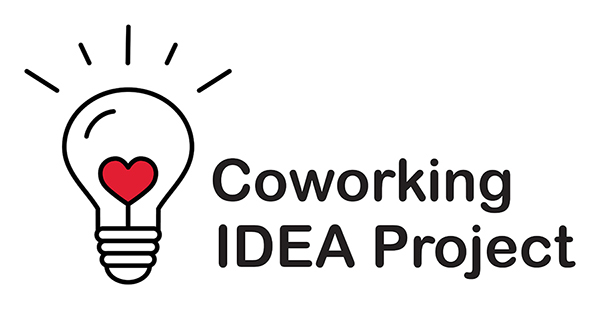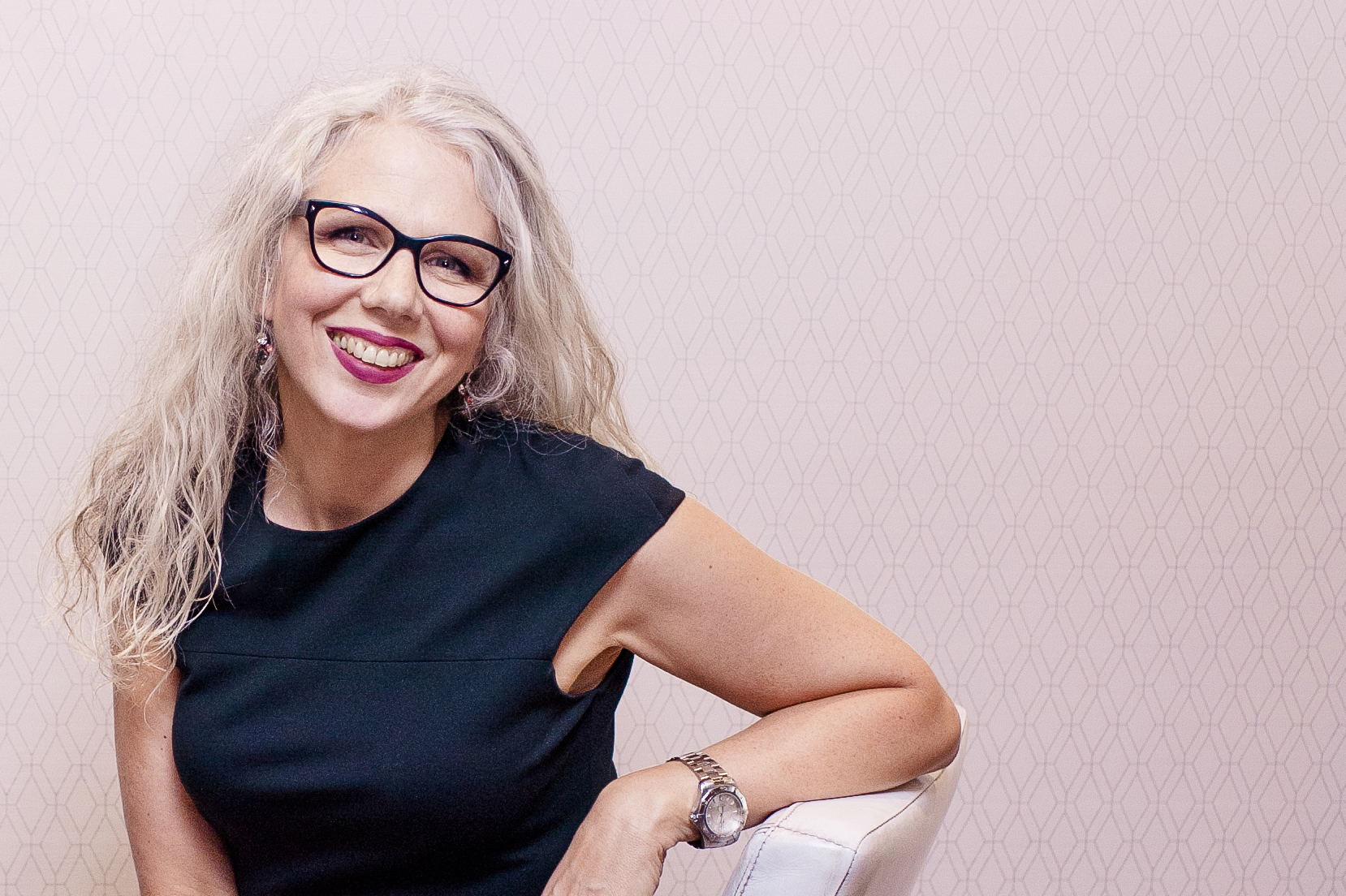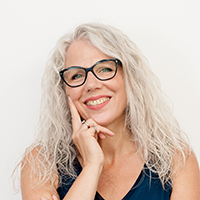Start the Conversation Around Menopause
March’s IDEA Challenge is facilitated by Kate Usher.
The IDEA Project is a global initiative aimed at developing Inclusivity, Diversity, Equity and Accessibility (IDEA) within coworking and collaborative spaces. Each month, we will host a challenge that assists you in broadening your understanding of IDEA, whilst giving clear actions for you to take to develop IDEA within your space.
Challenge #14 – Start the Conversation Around Menopause
It’s time to talk about Menopause
Before you click close, delete or become interested in any minutia other than this, it’s time to stop and read on.
Let me reassure you that this is not an unusual response for men or women. Virtually all of us grew up in households where Menopause was never discussed, whether that be for cultural or social reasons. We have been either directly or indirectly taught by our parents, carers and grandparents that this is either a non-subject or one that should only be whispered by older women in the shadows.
Most of the images we grew up with on TV and in the media of women over the age of 40 have been negative and derogatory. In fact, if you google Menopausal woman today, the images you get are of stressed, sweaty women in their 60s and 70s. They are in the majority white, with white hair and more than a little bedraggled.
These stereotypes are part of our unconscious, they drive our perception of women and of ourselves. Women fear declaring they are Menopausal in case the person on the other side of the breakfast table or desk thinks they are in that moment old, past it or no longer applicable. The issue is that in many instances this is what happens. Maybe not overtly but imperceptibly these thoughts and images drift through people’s minds.
While I will refer to women throughout this challenge, Menopause affects those who are nonbinary and transgender men. If you have ovaries you will have a Menopause.
Key facts
- Menopause is when a woman has not had a period for 12 months. After this she becomes and remains post-Menopausal
- The average age of Menopause in the west is between 49 and 51 depending on ethnicity
- 5% of women have their Menopause before the age of 45 and 1% before the age of 40. This includes young women in their teens and 20s
- The average age of women when they experience symptoms is between 45 and 55
- The average duration of Menopause in the UK is seven years. That’s every day and night of those years
- There are over 40 symptoms which cover the whole of women’s lives
- Every woman’s experience is as unique as her fingerprint
- Every woman will have a Menopause
At the point that most women start to experience symptoms, they have over 20 years of working life remaining. This is not the run in to retirement. It is in fact a transition into one of the most powerful periods of women’s lives. We have decades of knowledge and experience – just like men – but the Menopause denotes both a beginning and an end. As such women get the opportunity to define how they want the next phase of their lives to proceed. This in addition to the change in their hormones means that they become more focused and more driven than ever before. They are, we are formidable.
Women in this phase of their lives are valuable to any organisation. If they choose to leave and 10% of all women do, they take with them their knowledge of the business, how things work and why, their networks and their relationships. Replacement of these attributes and skills is complex, time consuming and of course costly. Women seek an employer that will support them, this needn’t be costly, but it does need to be flexible and empathetic.
What is Menopause? – VIDEO
It’s time to #BreaktheBias
The theme for International Women’s Day 2022 is #BreaktheBias. There is no other female life event that carriers as much bias and as many stereotypes as Menopause. Bias is part of being human, but as with every bias, once we are aware of it, we can actively break it and change it. Awareness is always the catalyst for change.
Your challenge
Your challenge this March is to start the conversation around Menopause. Because of the historical perceptions around Menopause we all – women and men – see it through stereotypes and bias. All of this is driven by assumptions, this is not a criticism it is part of being human. Awareness however, enables us to question the generic position and to reform our way of thinking to one which is inclusive.
To help things move smoothly, I have divided the challenge into two sections.
- The pre-thinking – this is where you think about what support you could offer a member of your team or collective if they are Menopausal
- The talking – this is a collective dawning of awareness and change. A process that will draw women into your culture, creating a visible act of inclusivity.
Pre-thinking
Here are three easy steps to get you through the pre-thinking.
- What do you want at the end of this?
What are your drivers other than the challenge to start this conversation? Do you want to demonstrate your caring credentials, do you want to make sure people stay working with you and not seek an alternative employer? Being clear about this will help you communicate in the best way possible.
- What support do you want to offer?
The large corporates in this world have big budgets to manage, but that does not preclude you from offering small yet meaningful adjustments.
Some suggestions are:
- Access to cold drinking water
- Free Sanitary wear
- Desk fans (hot flushes are not ubiquitous so won’t be applicable for everyone)
- Awareness of the cool and warm desks in a space
- Time off to visit medical professionals
- Support with prescription charges
- How will people access them
The first two points above should be available without the need to ask for them. Beyond that it is up to you how you manage them. Whatever you do women should not need to jump through hoops to access them. The pathway to support should be clear.
The talking
Here are seven easy steps to help you with your discussions (AUDIO FILE – 7 easy steps)
- Before you run for the hills, use the video ‘What is Menopause?’ as an ice breaker, alternatively talk through the facts at the beginning of this blog. That way you can raise everyone’s awareness at the same time.
- Ask what people think of when they think of a Menopausal woman? The key things to look out for are perceived age and ability ie old and past it or young and vibrant, white or every woman?
- Discuss any disparities between perception and reality using the facts above or in the video.
- Discuss women in the public eye who are publicly Menopausal or of average Menopausal age. This will also include those who are nonbinary and transgender men.
- Discuss the support that you as a team can offer to colleagues (this is where the pre-thinking comes in)
- Ask how you as a group/team/collective you can keep Menopause as an open and supportive discussion
- Identify how you might include Menopause in your onboarding process
Benefits of taking up the challenge
Firstly, and most importantly it is about valuing people, not just with words but with meaningful action. This is an inevitable part of female life and as such it can no longer be ignored.
From a business perspective the investment is minimal, but the potential gain is considerable. Menopause support enables people to continue in their chosen career, signalling to colleagues and clients that diversity is important as is an inclusive culture.
If one person chooses to stay or join because of this initiative, you have a return on your investment many times over.
If your brand is recognised for its values and its culture, the positive PR potential is considerable. If you employ women, sell to women or require investment from women this recognition is critical. Women notice.
In short, now is the time to start talking about Menopause.
KATE USHER is a Menopause Coach, Change Strategist, and an internationally published author.
Her book ‘Your Second Phase – Reclaiming work and relationships during and after Menopause’ was shortlisted for the Business Book of the Year Award 2021.

This Coworking IDEA challenge was created with support from our friends at Women Who Cowork.
WWCO supports womxn and non-binary coworking operators in running sustainable community workspace businesses through resilience-based and trauma-informed coaching, training and retreats programmed by a business strategist and mental health clinician.
Use the attached PDF
to navigate the March Challenge
March 30th 2022
9:00 AM Pacific | 12:00 PM Eastern
5:00 PM UK | 6:00 PM CET
I am a Menopause Coach and Change Strategist. I have had a near 20 year career as a global Project and Change Manager, working for FTSE 100 organisations, managing diverse teams around the world in far flung places. I trained as a psychotherapist over 20years ago and as a Coach over 15 years ago, which is what I focused on when I was made redundant in the global financial crisis when I had a toddler and was pregnant with my second child. Everything was going swimmingly until a few days after my 46th birthday, when I was woken by such intense heat I thought I was going to self combust. This was the beginning of my peri-Menopause. Within six months my symptoms were so extreme that I struggled to leave the house and take my young children to school. I was terrified about what was happening to me, nobody was talking about Menopause and I felt utterly alone. I decided to use the skills that I had to help myself, my marriage and my children. I very quickly realised that I had two choices, I could either let this consume me or stand up and talk about it. I chose the latter. Today I work with women and organisations to create simple strategies that enable modern and supportive Menopause conversations. This increases awareness of this life phase, its pivotal impact on equality across the workforce and representation in senior and executive positions.


